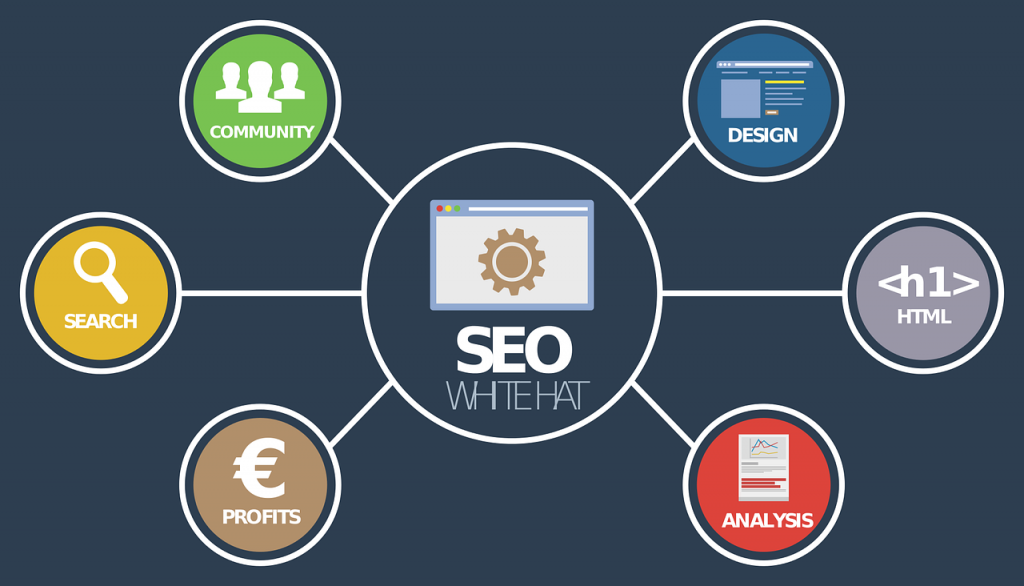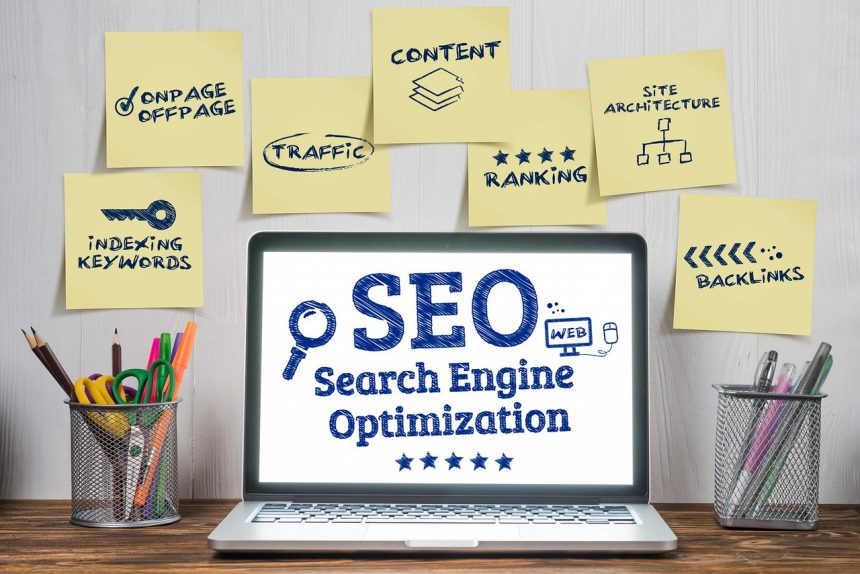10 Proven SEO Tips to Skyrocket Your WordPress Site’s Rankings: In today’s digital landscape, having a well-optimized website is crucial for improving visibility in search engine results and driving organic traffic. With its user-friendly interface and robust features, WordPress provides a solid foundation for implementing effective SEO strategies. This comprehensive guide will explore tips and best practices to boost SEO on your WordPress site, helping you climb higher in search rankings and attract more visitors.
Choose an SEO-friendly WordPress Theme:
Selecting a theme that is lightweight, well-coded, and optimized for SEO is the first step in enhancing your website‘s search visibility. Look for themes prioritizing speed, responsiveness, and clean code structure to provide a strong foundation for your SEO efforts.
Optimize Your Permalinks:
Permalinks are the URLs that point to your posts and pages. Customize your permalink structure to include relevant keywords and ensure they are concise, descriptive, and human-readable. Go to Settings> Permalinks in your WordPress dashboard to set up a structure that aligns with your SEO goals.

Install an SEO Plugin:
WordPress offers powerful SEO plugins like Yoast SEO and All in One SEO Pack. Install and configure one of these plugins to optimize your website’s on-page elements, such as meta titles, meta descriptions, headings, and keyword usage. These plugins provide valuable insights and recommendations to improve your SEO efforts.
Conduct Keyword Research:
Identify target keywords relevant to your content using keyword research tools like Google Keyword Planner or SEMrush. Incorporate these keywords into your page titles, headings, content, and meta tags. However, avoid keyword stuffing, as it can harm your SEO rankings.

Create High-Quality, Engaging Content:
Craft informative, well-researched, and engaging content that adds value to your readers. Focus on creating in-depth articles, blog posts, and other content relevant to your target audience. Use headings, bullet points, and images to enhance readability and user experience.
Optimize Image SEO:
Optimize your images for SEO by using descriptive file names and alt tags that include relevant keywords. Compress images to reduce file size and improve website loading speed. Additionally, consider using a dedicated image optimization plugin to automate the process.
Build High-Quality Backlinks:
Backlinks from reputable websites are an essential aspect of SEO. Focus on acquiring high-quality, relevant backlinks through guest posting, collaborations, and creating shareable content. Ensure that the backlinks you acquire are from authoritative sources to maximize their impact on your search rankings.
Improve Website Speed and Performance:
Optimize your website’s speed and performance to enhance user experience and search engine rankings. Enable caching, minify CSS and JavaScript files, optimize database queries, and use a reliable hosting provider to ensure fast-loading pages.
Enhance Mobile Responsiveness:
With the increasing use of mobile devices for internet browsing, ensure your WordPress site is fully optimized for mobile responsiveness. Use responsive design techniques to provide a seamless user experience across all devices, positively impacting your SEO rankings.
Monitor and Analyze Your SEO Efforts:
Regularly monitor your website’s performance using tools like Google Analytics and Google Search Console. Track key metrics such as organic traffic, keyword rankings, and user engagement to evaluate the effectiveness of your SEO strategies. Use this data to identify areas for improvement and make informed decisions to optimize your WordPress site further.
By implementing these SEO tips and best practices on your WordPress site, you can enhance its visibility, attract organic traffic, and ultimately achieve your online goals. Stay updated with the latest SEO trends and algorithm changes to ensure your website remains competitive in rankings.
FAQs about Boosting SEO on Your WordPress Site: 10 Proven SEO Tips to Skyrocket Your WordPress Site’s Rankings
What is SEO, and why is it essential for WordPress sites?
SEO stands for Search Engine Optimization, which involves optimizing your website to rank higher in search engine results pages (SERPs). For WordPress sites, SEO is crucial because it helps improve visibility, attract organic traffic, and grow your audience.
How can I improve the SEO of my WordPress site?
Several ways to boost SEO on your WordPress site include:
- Choosing an SEO-friendly theme.
- Optimizing permalinks.
- Installing SEO plugins.
- Conducting keyword research.
- Creating high-quality content.
- Optimizing images.
- Building backlinks.
- Improving website speed and performance.
Which SEO plugin is best for WordPress?
Two popular SEO plugins for WordPress are Yoast SEO and All in One SEO Pack. Both offer powerful features for optimizing on-page elements, providing insights, and improving overall SEO performance. Choose one that best suits your needs and preferences.
What is keyword research, and how do I do it for my WordPress site?
Keyword research involves identifying relevant keywords and phrases your target audience is searching for online. You can use tools like Google Keyword Planner, SEMrush, or Ubersuggest to find keywords related to your content. Focus on long-tail keywords with moderate search volume and low competition.
How important is website speed for SEO on WordPress?
Website speed is crucial for WordPress SEO because it impacts user experience and search engine rankings. Faster-loading pages are more likely to rank higher in SERPs and provide a better experience for visitors. Optimize your website’s speed by enabling caching, minimizing CSS and JavaScript files, and using a reliable hosting provider.
What are backlinks, and how do they affect WordPress’s SEO?
Backlinks are links from other websites that point to your WordPress site. They are essential for SEO because search engines consider them as votes of confidence in your content. High-quality backlinks from authoritative websites can improve authority and credibility, leading to higher search rankings.
Can I optimize images for SEO on my WordPress site?
Yes, you can optimize images for SEO on your WordPress site by using descriptive file names and alt tags that include relevant keywords. Additionally, compress images to reduce file size and improve website loading speed. Consider using image optimization plugins to automate the process and further enhance SEO.
How often should I update my WordPress site for SEO purposes?
Regular updates are essential for SEO on WordPress to keep your site fresh, relevant, and optimized. Update your content regularly with new information, blog posts, and product listings. Keep your WordPress core, themes, and plugins updated to ensure optimal performance and security.

 With a keen eye for emerging technologies and a thirst for knowledge, I thrive on staying ahead of the curve and diving deep into the realms of coding, AI, and beyond. Whether it's experimenting with new software, tinkering with hardware, or envisioning the future of technology, I'm dedicated to making an impact and shaping the digital landscape. Join me on this exhilarating journey as we unlock the possibilities of tomorrow, one line of code at a time.
With a keen eye for emerging technologies and a thirst for knowledge, I thrive on staying ahead of the curve and diving deep into the realms of coding, AI, and beyond. Whether it's experimenting with new software, tinkering with hardware, or envisioning the future of technology, I'm dedicated to making an impact and shaping the digital landscape. Join me on this exhilarating journey as we unlock the possibilities of tomorrow, one line of code at a time. 


